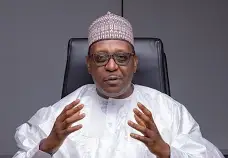The Coordinator of the Africa Infodemic Response Alliance (AIRA), Elodie Ho, has called for disciplinary action against those promoting and spreading misinformation and disinformation in public health.
Ho made this call on Tuesday during a webinar organised by Nigeria Health Watch, titled “Evidence-Based Frameworks for Networked Infodemic Management.”
She warned that the lack of accountability enabled the continued spread of harmful narratives, which severely affected public health efforts.
The News Agency of Nigeria (NAN) reports that misinformation refers to false or inaccurate information shared without the intent to deceive, while disinformation is false information deliberately spread to mislead.
According to Ho, both forms of information have significantly undermined public health responses around the world.
“The absence of penalties for disinformation allows it to flourish.
“We are left trying to undo damage that could have been prevented.
Legal accountability must be part of the solution,” she said. Ho noted that since the onset of the COVID-19 pandemic, countries had struggled to manage the rapid spread of false health information, particularly on social media platforms.
She explained that misinformation had contributed to vaccine hesitancy, distrust in public health institutions, and confusion over treatment protocols—factors that had severely hampered disease control efforts.
To address these challenges, Ho said AIRA had adopted a four-pillar strategy: identify, simplify, amplify, and quantify, to help countries track, analyse, and respond to misleading narratives in real time.
She emphasised that effective frameworks must be practical, adaptable, and implemented across sectors.
“We need to go beyond the health sector. The justice system, education, technology, and communication actors all have a role in building resilience to misinformation,” she said.
In her opening remarks, Managing Director of Nigeria Health Watch, Mrs Vivianne Ihekweazu, said that trust was the bedrock of effective health communication and was easily eroded by falsehoods.
“As the World Health Organisation (WHO) has reminded us, trust is everything. Once lost, it’s incredibly difficult to rebuild,” she said.
She added that the public was overwhelmed and unsure of where to find credible health information, and was seeking honest, empathetic voices to guide them.
“This is why today’s conversation is critical. We must move from ad hoc reactions to structured, scalable systems for infodemic management,” she said.
Ihekweazu stressed the need for evidence-based frameworks that were scalable, adaptable, and rooted in community realities, noting that infodemic management must be an ongoing, networked process, not a one-off campaign.
Also speaking, Executive Director of Resilience Action Network Africa (RANA), Mr Aggrey Aluso, said the world learned from COVID-19 that having facts alone was not enough.
“Truth without structure can be drowned out. In the age of viral lies, coordination is not optional; it is our only difference,” Aluso said.
He called for proactive communication strategies, narrative labs, and pre-bunking efforts to build resilience against false narratives.
Representing the Nigeria Centre for Disease Control and Prevention (NCDC), Mr Michael Okali outlined the agency’s integrated risk communication approach, based on WHO’s model.
He said this included social listening, stakeholder coordination, and strategic communication through diverse channels.
He said the NCDC also partners with traditional institutions, media organisations, and community-based groups to ensure culturally sensitive and consistent messaging across all levels. NAN reports that the webinar brought together experts in health communication, digital technology and policy to explore sustainable, cross-sectoral approaches to countering the infodemic that continues to challenge public health systems globally. (NAN)



